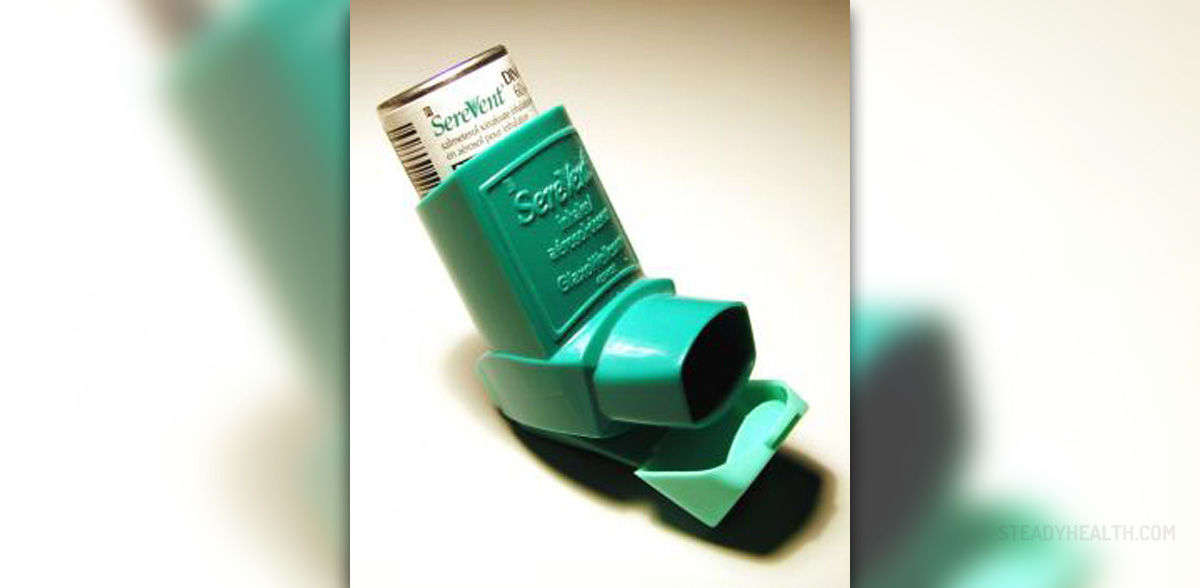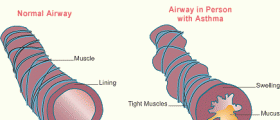
Asthma attack is a worsening of typical asthma symptoms, often experienced by people suffering from this condition. Asthma attack takes place when the muscles around the airways suddenly become tightened. This is known as bronchospasm. In the course of an asthma attack, the lining of the airways is swelling and becoming severely inflamed. This causes hyper production of thick mucus resulting in typical symptoms of an asthma attack: wheezing, coughing, difficulty breathing, short breath, and severe impairment in performing daily activities. Some people may even feel pressure and pain in the chest, and may experience extreme anxiety and panic. However, it is very important to remain calm and focused during an asthma attack, and do everything to prevent further complications.
What to do during asthma attack?
One should understand that an asthma attack might occur anytime during the treatment, despite the fact that the patient has been taking the medications on time and avoiding triggers. Asthma attack is something one should always be prepared for. Patient should be ready to follow a couple of simple guidelines to overcome the dangers of an asthma attack. A first step is to immediately take one or two puffs of the reliever inhaler and sit down to relax and try to take a couple of slow breaths. In most of the cases, patients will immediately feel better but if this does not happen, one should continue taking puffs every two minutes. The maximum number of puffs should not exceed ten. If the tension continues or if the patient feels anxious and worried, it is the right time to call the ambulance. If the ambulance is late, for some reason, patient may continue taking puffs until the doctors arrive.
Worsening symptoms
Asthma attack typically occurs gradually, after a series of worsening symptoms. The symptoms usually start a couple of days before the asthma attack, but most of the patients do not pay much attention to them. However, it is important not to ignore the symptoms and seek professional help on time. Most commonly, patients will need to use their reliever inhaler more than three times a week, prior the asthma attack. This is a strong indicator that there is something wrong with the body. Patient should consider this change and make an urgent appointment at the medical office as soon as it is possible.
Complications of asthma attack
Unmanaged asthma attack can be very serious and even fatal. It usually obstructs the patient’s normal daily activities at school, work and society. It interferes with the sleeping and exercise patterns and lowers the overall quality of life. Serious asthma attack can also cost one a lot of money, since it requires frequent emergency measures. Very severe attack can even progress to respiratory arrest, causing death.

















Your thoughts on this
Loading...